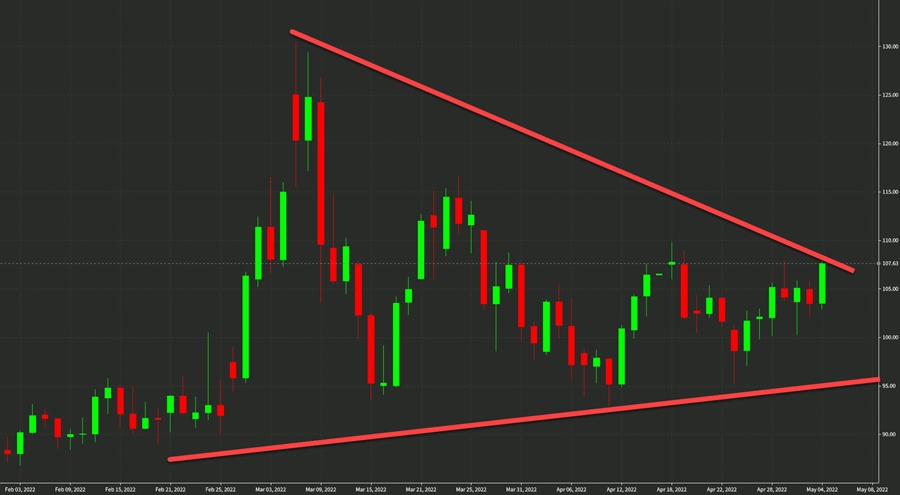I don't believe in any market moves that happen right before the Fed but I've been amazed by the strength in oil in the past few weeks despite:
- Weak GDP readings and falling economic data
- China lockdowns
- Terrible equity market sentiment
Yet oil is a hiccup away from the best daily close since March 25. More importantly, this narrowing wedge pattern is in danger of breaking to the upside. I would like to see a rise above $110 to confirm it but this is a chart that bears very close watching. Reports suggested the EU is on the verge of banning Russian oil with a six month deadline and could make the announcement tomorrow.




